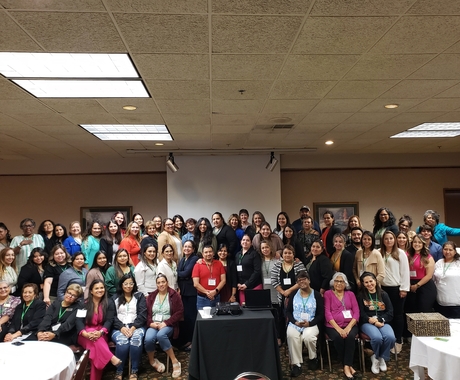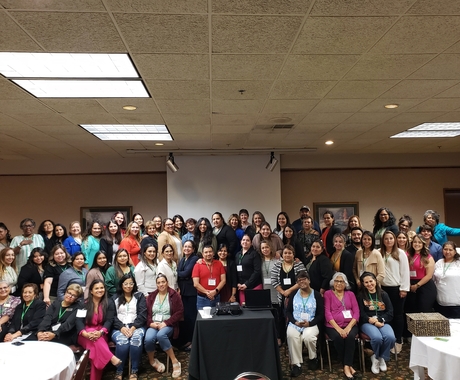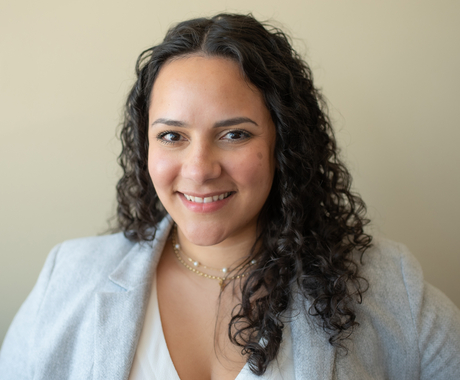Teresa Hoffman, policy communications associate, [email protected], 402.687.2100, ext. 1012; Rhea Landholm, brand marketing & communications manager, [email protected], 402.687.2100 ext 1025
LYONS, NEBRASKA – As lawmakers consider legislation to address the economic fallout of the coronavirus pandemic, a group of 65 small business lenders across 32 states are calling on Congress to treat rural and urban businesses equally when it comes to providing relief.
While the recently-passed Coronavirus Aid, Relief and Economic Security (CARES) Act created a program that provides immediate relief to small businesses with loans from the Small Business Administration (SBA), there was no such provision for those who have loans from the U.S. Department of Agriculture (USDA) under the Rural Microentrepreneur Assistance Program (RMAP).
In a letter to Congress, the group is requesting that any new legislation to address the coronavirus pandemic include six months of principal, interest, and fee payment relief for RMAP borrowers, similar to that already granted to businesses who borrow through SBA.
“We believe these small business borrowers should be treated equally,” said Johnathan Hladik, policy director with the Center for Rural Affairs. “The majority of these business owners are in the service industry, which has been severely damaged by the coronavirus pandemic. They should not be ignored just because they are rural.”
RMAP, which was first created as part of the 2008 farm bill, allows the USDA to coordinate with Microenterprise Development Organizations that provide training, assistance, and lending capital to rural entrepreneurs. To qualify for a loan, a business must be located in a rural area, unable to access loan capital from other sources, and have 10 or fewer employees.
Since 2008, RMAP has helped more than 2,100 small businesses expand operations, create new jobs, and tap into new markets. Loans have been made in nearly every state and in Puerto Rico.
In 2017, 18 nonprofit Microenterprise Development Organizations worked with the USDA to make 156 loans. Though the average amount was just under $28,000, this helped start 26 new businesses and create 286 new jobs. At least 60 of these loans were made to women and 153 to racial/ethnic minorities.
“This policy has the potential to change lives for more than 1,000 small business owners in rural America,” Hladik said. “We believe these individuals deserve the same opportunity as SBA borrowers, and should not be treated differently because their zip code is rural.”
Click here to read the full letter.
Signing the letter were:
Arizona
Barbara A. Coronado, PPEP Microbusiness and Housing Development Corporation
Danny Knee, Community Investment Corporation
California
Diann Simmons, Economic Development & Financing Corporation
Marie-Josée Wells, Great Northern Services
Nancy T. Swift, Jefferson Economic Development Institute
Reggie Knox, California FarmLink
Lora Ceccon, Colusa County Partnership
Patti Chang, Feed the Hunger Foundation
Colorado
Mike O'Donnell, Colorado Lending Source
Arturo Alvarado, Community Resources & Housing Development Corporation
Delaware
Vandell Hampton, Jr., True Access Capital
Georgia
Robert Cooke, Southwest Georgia United
Monica Simmons, Cordele-Crisp Chamber of Commerce
Idaho
Christine Frei, Clearwater Economic Development Association
Illinois
Robyn Laur Russell, Southern Illinois Coal Belt Champion Community
Kentucky
Jerry Rickett, Kentucky Highlands Investment Corporation
Sharon Bird, Community Ventures
Maine
Amy M. Landry, Androscoggin Valley Council of Governments
Robert Clark, Northern Maine Development Corporation
Glen Holmes, Community Concepts Finance Corporation
Josh McIntyre, Eastern Maine Development Corporation
Laura Buxbaum, Coastal Enterprises, Inc.
Michigan
Dennis West, Northern Initiatives
Minnesota
Cheryal Lee Hills, Region Five Development Commission
Cheryal Lee Hills, The North Central Economic Development Association
Jackie Turner, Southwest Initiative Foundation
Mississippi
Andrea Hendricks, Small Business Capital Fund of Mississippi
Montana
Dave Glaser, MoFi
Nebraska
Jim Reiff, Nebraska Enterprise Fund
Kim Preston, Center for Rural Affairs
Tom Bliss, Southeast Nebraska Economic Development District
Nevada
Mary Kerner, Rural Nevada Development Corporation
New Hampshire
Lise Howson, Coös Economic Development Corporation
New Mexico
Agnes Noonan, Women's Economic Self-Sufficiency Team
Conchie Searle, New Mexico Community Development Loan Fund
New York
Victoria Zinser Duley, Adirondack Economic Development Corporation
Hubert Van Tol, PathStone Enterprise Center
North Carolina
Kevin Dick, Carolina Small Business Development Fund
North Dakota
Amber Metz, Lake Agassiz Development Group, North Dakota
Ohio
Inna Kinney, Economic and Community Development Institute
Oregon
Emily Reiman, Community LendingWorks
Betty Riley, Klamath Lake Regional Housing Center
Phil Warnock, Oregon Cascades West Council of Governments
Pennsylvania
Steve McKnight, The Altoona Blair County Development Corporation
Joan Brodhead, Community First Fund
Michelle Clapper, JARI Growth Fund
South Carolina
J. Connally Bradley, Appalachian Development Corporation
Gilleon J. Frieson, Williamsburg County Economic Development Board
South Dakota
Ron Rosenboom, West River Foundation
Lori Finnesand, GROW South Dakota
Lakota Vogel, Four Bands Community Fund
Lindsey Kimber, Glacial Lakes Area Development
Tennessee
Grady S. Vanderhoofven, Three Roots Capital
Texas
Manuel Estrada Jr., Neighborhood Housing Services of Dimmit County, Inc.
Vermont
James Stewart B., Central Vermont Economic Development Corporation
Adam Grinold, Brattleboro Development Credit Corporation
Daniel Winslow, Vermont Community Loan Fund
Alexander Rob, Community Capital of Vermont
Virginia
Robert G. Goldsmith, People Incorporated Financial Services
West Virginia
Dave Clark, Woodlands Development Group
Kathy McMurray, Mountain CAP of West Virginia, Inc.
Wisconsin
Mary Patoka, CAP Services
Wendy Baumann, Wisconsin Women's Business Center
Joe Becker, Fond du Lac County Capital Resources
Wyoming
Waldo Smith, Wyoming Women's Business Center




